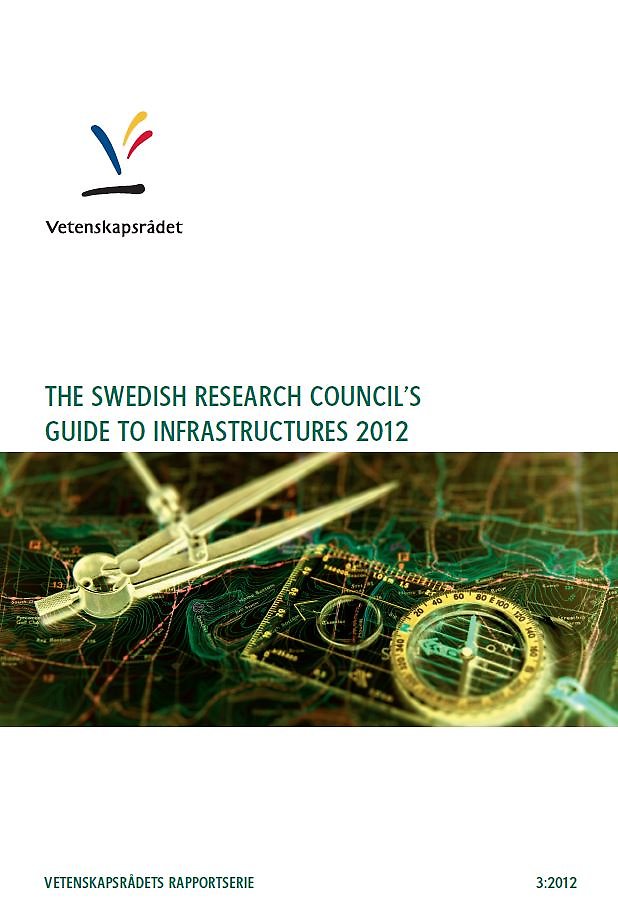The Swedish Research Council’s guide to infrastructures 2012
Research environments with world-class infrastructures are essential for the advancement of science. They also generate innovation, influence the social climate, and attract talent. The Swedish Research Council’s guide to infrastructures presents an overview of the long-term needs for research infrastructures to enable Swedish research of the highest quality in all scientific fields. The guide addresses proposals for new infrastructures that have achieved a sufficiently high level of scientific, technical, and organisational maturity that it is time to determine whether or not to implement them. The guide also presents recommendations for new infrastructure projects or areas where Swedish research would benefit substantially from greater national and/or international coordination. Research infrastructures encompass central or distributed research facilities, databases, and large-scale computing, analytical, and modelling resources.
The Swedish Research Council published its first guide to infrastructures in 2006, and released an updated version in 2007/2008. This, the third edition of the guide, has been produced by the Council for research infrastructures and its evaluation panels in close collaboration with the scientific councils within the Swedish Research Council, other research funding bodies, universities and higher education institutions, and other research groups.
MORE WITHIN THE SAME SUBJECT AREA
-
Grant decision |
Published 31 May 2024
The Council for Research Infrastructures, RFI, has decided how the 70 proposals submitted in last year’s needs inventory shall be categorised. 19 of the areas have been placed in Category A1, which means that they are highly prioritised and may be in...
Keywords:
-
Article |
Published 8 April 2024
Are you doing research in computational science? Then you can apply for access to Swedish and European computational resources at NAISS and EuroHPC. Here you can read more about how to do this.
Keywords:
-
Infrastructures |
Published 25 March 2024
ArchLab is a distributed research infrastructure that coordinates a number of laboratories that use natural science methods to tackle archaeological questions. The infrastructure is under construction and is coordinated from Umeå University.
Keywords:




